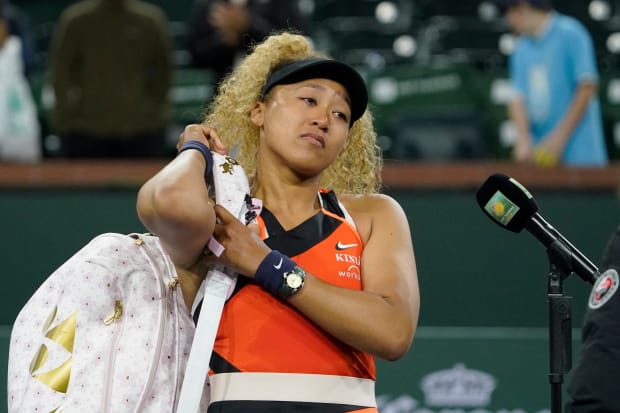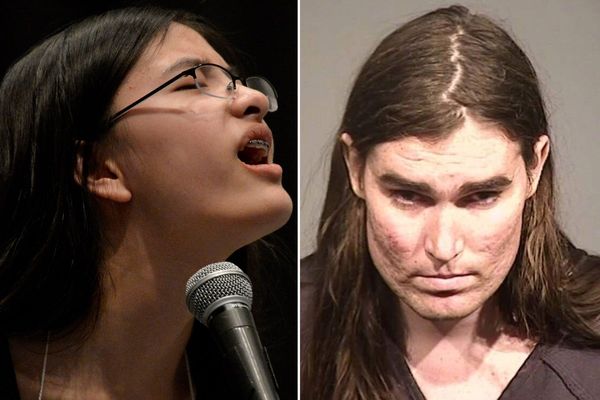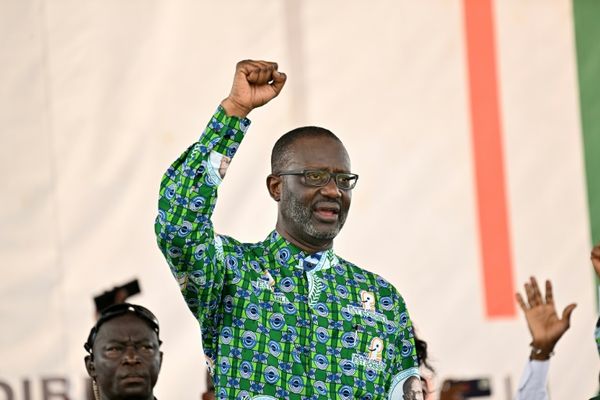Let’s start with a story. It takes place in Indian Wells, Calif., at the BNP Paribas Open. Naomi Osaka was on one side of the net. A heckler was in the stands, letting her have it. And Osaka was visibly upset.
This story doesn’t take place this past Saturday night—we’ll get to that in a moment—but rather four years ago. Osaka was facing Sachia Vickery in an early-round match. Vickery—a young American inspired by the Williams sisters and who came to tennis not via country clubs but when her grandmother bought her a racket at a Dollar Store—brought a considerable fan section to this big match. One of the members in her traveling party was especially vocal. Nothing personal. But he brought with him the same sensibilities he would to a Rams or Dodgers or Lakers game and began to yap at the opponent.
Osaka was rattled. She cast a downbeat look and began to tear up. Her coach at the time, Sascha Bajin, asked the fan to stop. Taking advantage of the WTA’s rules that permit coaching during matches at events other than the majors, Bajin came onto the court and calmed Osaka down. She would win the match. And the tournament. And the U.S. Open six months later, her breakthrough.

Mark J. Terrill/Associated Press
Osaka has won three additional majors since then. She has topped the world rankings. She has hauled in more than $100 million in endorsements and lit the torch at the 2020 Tokyo Olympics. And still, she is unsettled by conflict and confrontation and partisan fans. Osaka has said she has struggled with depression since her 2018 US Open victory against Serena Williams and stepped away from the sport in ’21 to tend to her mental health. Since then, her ranking has slipped to No. 78, and she has now gone more than a year without winning a title. On Saturday, she was playing her second match at Indian Wells, against Russian Veronika Kudermetova. Early in the match, a fan yelled, “You suck.”
For as well as Kudermetova played, Osaka never recovered her bearings after the fan’s remark. After losing 6–0, 6–4, she took the unusual step of requesting the courtside microphone. She then referenced a previous moment of heckling at Indian Wells. It was not her match from 2018.
“To be honest, I’ve gotten heckled before, and it didn’t really bother me,” Osaka said. “But, like, heckled here? I watched a video of Venus and Serena getting heckled here, and if you’ve never watched it, you should watch it. And I don’t know why, but it went into my head and it got replayed a lot. I feel like I’ve cried enough on camera.”
She was referring to a weekend in 2001, when the Williams sisters were jeered by the crowd—circumstances far harsher and more hostile than a single fan yelling, due to the ugly racial undercurrent the sisters endured. Though Serena played through the boos and won the tournament, both sisters declined to play Indian Wells for the next 14 years.
After Osaka’s explanation Saturday, she left the court and then skipped a post-match media conference.
Ours is a binary world, and there were two responses to this latest controversy. One pervasive view: Osaka was soft and weak and entitled and a personification of snowflake culture run amok. Noted tennis aficionado Jason Whitlock declared: “A thousand cheers vs. one heckle. Fragile. Weak. Embarrassing. The news here isn’t that she was heckled. The news is we’ve produced a culture that celebrates weakness and victimhood.” On the other baseline: Anything other than full-throated and unconditional support for Osaka was found lacking in empathy and sympathy. She was subjected to verbal harassment. (That she implied it was motivated by racial animus made it all the more fraught.)
There was nothing out of the ordinary about a top-tier athlete getting thrown off her game by a lone heckler. Yet, as Osaka’s latest controversy predictably takes its place in the culture wars, there is a more fundamental issue here: Should Okaka take more time away from the game and continue to make herself the ultimate priority?
By Osaka’s own admissions over the past year, conflict and confrontation can cause her anxiety. This is a normal and understandable, even admirable sentiment. But it’s highly problematic for an athlete operating in a sector predicated on competition. It is, after all, confrontation and unscripted moments that make sports what they are.
And the passion that sports imbue in fans—sometimes expressed with cheers, sometimes with boos and heckles—are why thousands of fans enter venues and millions watch on television. (And, by extension, why millions are paid to people who excel at batting balls with sticks.)
Bellowing “you suck” to a complete stranger might strike us as deeply uncivil, even hostile. But for a professional athlete it’s usually an occupational hazard. At best, it’s a sign people are invested in the product.
At the peak of her powers, there is no one better than Osaka. But she is not there now. Not when a lone heckler can go “in my head,” cause another defeat and, more important, another experience that seemingly creates a level of anxiety and unhappiness.
Osaka has spoken—admirably and at length—about her mental health and stressors over the past year. She has made the point that just because an injury doesn’t show up on an X-ray or MRI doesn’t make it less real. And she’s right. But by the same logic, the same way an athlete with a bad back or an unhealed knee might not be able to compete, it seems fair and reasonable to ask whether Osaka could use more time away to find answers for herself.







